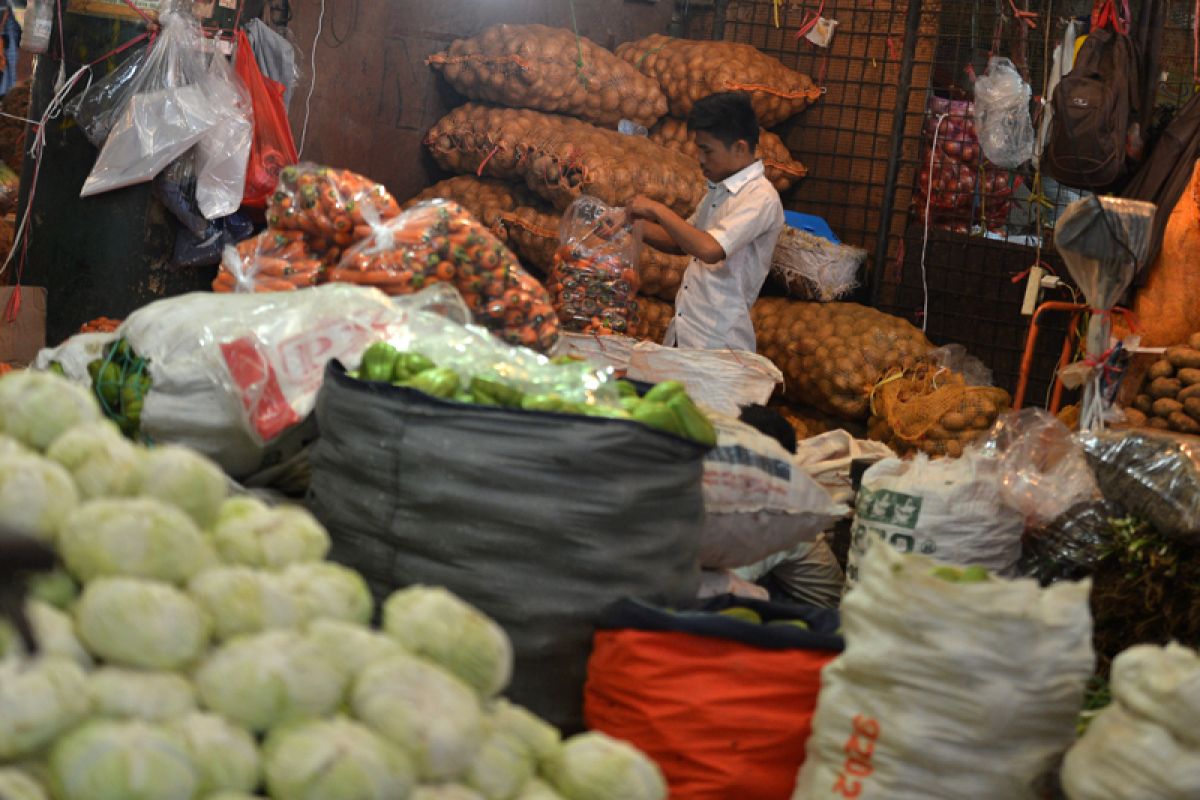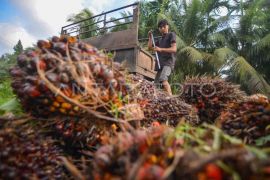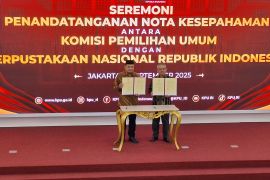On Thursday (Nov 15), the Institute for Development of Economics and Finance (INDEF) drew the government`s attention to inflation or the year-end volatile food prices.
"Based on the pattern of inflation movement data from 2014 to 2017, inflation on the prices of goods had always begun to increase in November and go down in January," INDEF researcher Riza Annisa Pujarama stated.
Pujarama stated that inflation in the food sector in December had always been higher than the general inflation in the past eight years. Food prices usually begin to crawl up in November and reach their peak in December.
Hence, the Ministry of Trade is deploying 260 personnel to check the available stocks of basic necessities and prices across the country.
"If there is scarcity in stocks, we should ensure that the commodities are supplied to regions facing shortage, so there would be no reason to increase the prices," Secretary General of the Trade Ministry Karyanto Surih stated on Tuesday (Nov 13).
In fact, the government has implemented a system that can prove the inflation rate remained under control for consecutive periods.
According to Surih, the Trade and Industry Services had been tasked with conducting on-field visits and providing a report on it to check for surplus of basic goods in a region and to allocate them to other regions.
The Ministry of Trade is keen to ensure that the availability of basic commodities in all regions can be maintained in order to avoid price hike.
"If basic commodities are available, prices are unlikely to rise," he noted.
In order to help the government maintain stability in food commodity prices and inflation, the National Police will also deploy a Food Task Force to monitor food security and to ensure adequate food stocks, particularly of basic necessities, in the face of Christmas and New Year 2019.
"We know that in the face of Christmas and New Year, the demand for basic commodities rises due to increasing needs," Head of the National Police`s Criminal Investigation Department (Bareskrim) Insp. Gen. Arief Sulistiyanto stated on Thursday (Nov 15).
The National Police made the decision to launch a monitoring operation after a coordination meeting to discuss precautionary measures to tackle the scarcity of food supplies at the Bareskrim office.
Along with other stakeholders, such as businessmen, distributors, and retail traders, the Food Task Force will ensure the availability of basic necessities.
If the stock is adequate and distribution is smooth, it will be able to meet the demand of the people, and price turmoil would not occur.
"This is a step that the National Police chief has stressed about. We have to be proactive in taking coordination measures to guarantee that the stock of goods is available, and distribution is smooth," Sulistiyanto stated.
He believed that the Task Force will be able to quickly find any party conducting hoarding, and law enforcement measures will be firmly implemented, although it will be the last resort.
Before enforcing the law, the task force will take coordinating steps to discuss efforts to find a solution in its forum.
According to INDEF, price volatility that tends to occur at the year-end over the past several years has the potential to recur during the corresponding period this year.
"The government needs to take anticipatory steps, so that the hike will not be too high," Pujarama noted at a press conference.
In 2018, inflation is triggered by rising core inflation and volatile goods inflation. The rupiah exchange rate depreciation drives core inflation rates. When the average rupiah exchange rate jumped to Rp14,400 per US dollar in July, the core inflation jumped to 0.41 percent, the highest figure during the period from January to October 2018. Volatile goods inflation mainly occurred due to a surge in the prices of several commodities.
Government-administered price inflation moved steadily in 2018. Until October 2018, government-controlled price inflation moved relatively low and stable. This is because the government had not raised subsidized fuel prices and electricity tariffs in 2018, so the government-regulated price inflation moved to be more stable and lower than 2017.
The Central Bureau of Statistics (BPS) has recorded an inflation rate of 0.28 percent in October 2018, so the inflation rate during the January-October 2018 calendar year was recorded at 2.22 percent and inflation from year-to-year had reached 3.16 percent. This inflation has the potential to increase significantly at the end of the year in the event of food price volatility.
To this end, Secretary General Karyanto Surih appealed to those selling staple food items to not cheat, for instance, by stockpiling basic commodities, as the Ministry of Trade will take firm action against it.
"We are working with the food task force. If there is an increase in the price of goods in a place, and it turns out that there is a stockpiling, then it will be blacklisted. We will also blacklist the name of the seller or entrepreneur," he warned.
In this case, the INDEF also suggested that the food task forces remain firm to take precautionary measures against the moral hazard that could arise at anytime.
The Ministry of Trade is also developing a technology, so that each region is able to report on the availability of basic commodities in the market.
"We are reviewing this, and we will submit it later," Surih concluded.
Editing by INE
Reporter: Andi Abdussalam
Editor: Heru Purwanto
Copyright © ANTARA 2018












